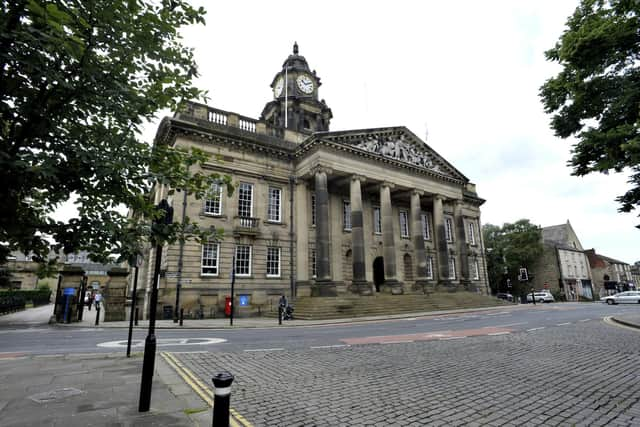Lancaster City Council sets its budget for 2022/23
and live on Freeview channel 276
City councillors also agreed proposals on Wednesday (February 23) which aim to meet the council’s aims of becoming a zero (net) emitter of carbon by 2030.
Plans to fulfil this aim include the replacement of 52 vehicles with electric alternatives over the next four years, helping to reduce CO2 emissions and contributing to an increase in air quality.
Advertisement
Hide AdAdvertisement
Hide AdThis includes large vans, road sweepers and refuse collection vehicles, with the council aiming to have a fully decarbonised fleet by 2030.


Despite challenging financial conditions due to the Covid-19 pandemic and reductions in government funding, the council’s budget also finds areas to improve its services for the community.
This includes more money for its public realm team to better tackle issues such as fly tipping, graffiti, and grounds maintenance.
Support for the vulnerable and poorest members of the community is to be maintained through continuation of the Lancaster council tax support scheme and repurposing of the Welfare Reform reserve to further support those experiencing food and fuel hardship.
Advertisement
Hide AdAdvertisement
Hide AdTo support the new budget, the portion of Council Tax collected by Lancaster City Council is set to increase by an average of £5 a year, or 10p a week, to £241.95 for those in a Band D property.
Coun Anne Whitehead, cabinet member with responsibility for finance, warned that while this year’s budget is balanced, tough times lie ahead. By 2023/24 the council will need to save approximately £2.165m, rising to nearly £4m by 2025/26.
“I’m proud that we have been able to balance this year’s budget without having to dip into our reserves, particularly given the continuing uncertainties with respect to Covid-19, Brexit and Local Government Funding,” she said.
“At the same time we have been able to bring forward investment in the public realm to tackle issues we know are important to our residents, and also areas which will support our ambitions around tackling the climate emergency.
Advertisement
Hide AdAdvertisement
Hide Ad“With this in mind a modest increase in Council Tax has been necessary, particularly as this will help us to protect our council services in the future. The Government has also predicted the council’s funding levels on the basis that it makes this increase.
“We are acutely aware of the burden that Council Tax increases could place on some households. So, we have maintained the localised council tax support scheme which provides up to 100% support to households on low incomes, and we have repurposed the Welfare Reform reserve in order to use the funds to further support those experiencing food and fuel hardship.
“We now have to immediately turn our attention to future years as our budget position will be particularly challenging. We will need to examine every area of what we do to grow our income and find areas where we can become more efficient.”
As 80 per cent of the district's homes are in the lowest bands (A to C) the actual increase will be even lower than £5 for the majority of households.
Advertisement
Hide AdAdvertisement
Hide AdWhile as the billing authority Lancaster City Council collects Council Tax, it only receives around 12 per cent of the total bill to spend on its services, which include the collection of waste and recycling, parks and open spaces, street cleaning and environmental health.
Excluding parishes, of the remaining bill, the majority goes to Lancashire County Council (73 per cent), with precepts from Lancashire Police Authority (11 per cent) and Lancashire Combined Fire Authority (four per cent) making up the rest.